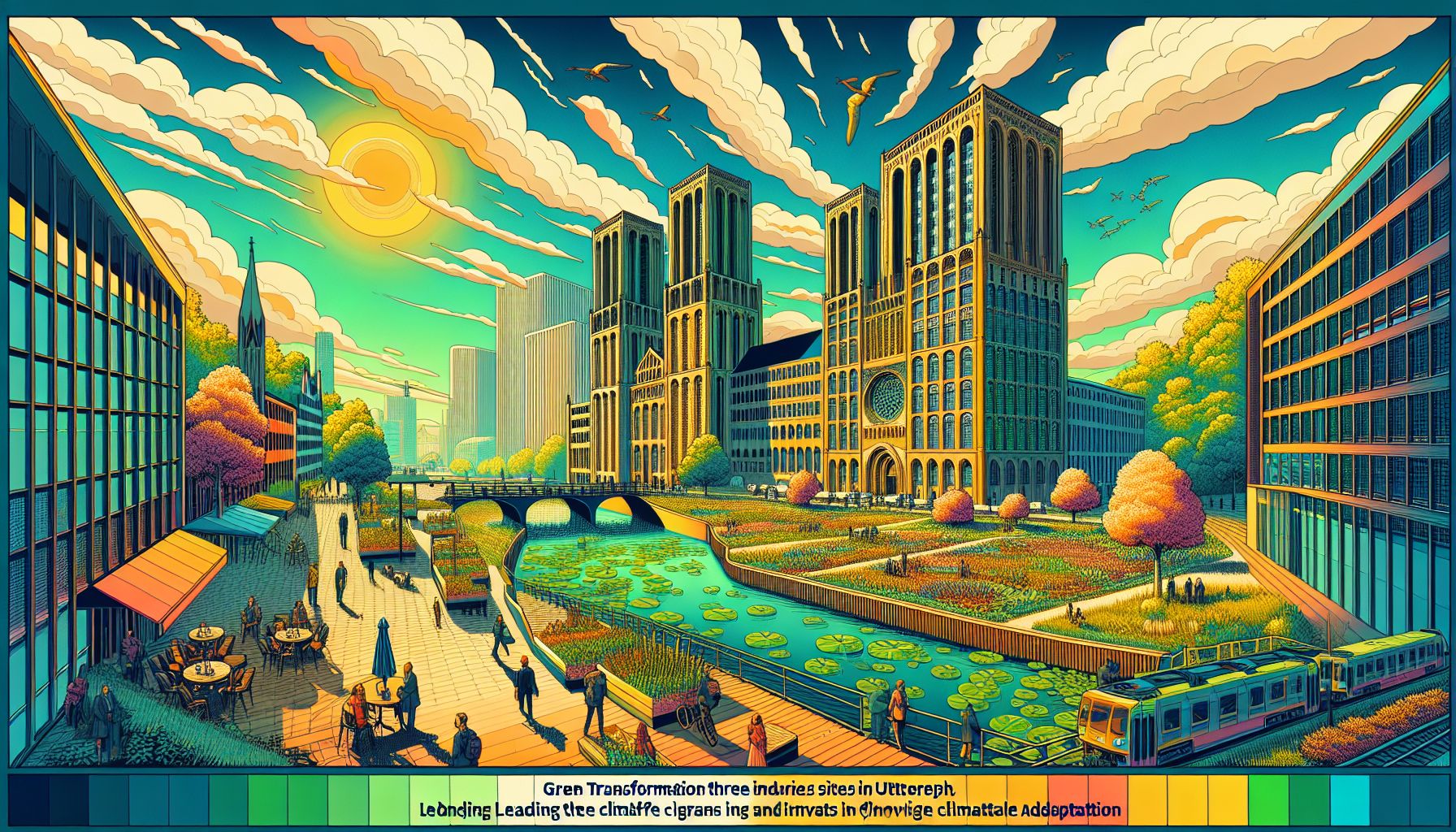Utrecht Industrial Areas Lead Green Transformation

Utrecht, Friday, 13 December 2024.
Three industrial sites in Utrecht are pioneering green innovation and climate adaptation, setting a national standard for sustainable business environments with official initiatives starting December 12, 2024.
Strategic Transformation of Key Industrial Sites
The province of Utrecht is launching an ambitious transformation of three industrial areas - Lage Weide, Nieuw Overvecht, and Ambacht/Nijverkamp - as part of the national ‘Werklandschappen van de Toekomst’ program [1]. With Lage Weide designated as a Living Lab and the other two sites serving as Ambassador Sites, this initiative marks a significant shift in industrial zone development [1]. The project’s importance is underscored by the scale of Utrecht’s industrial landscape, which encompasses 2,730 hectares and houses approximately 16,000 businesses employing 175,000 workers - representing 24% of the province’s total employment [1].
Climate Resilience and Economic Growth
According to Economy Commissioner André van Schie, these pilot projects are crucial for maintaining Utrecht’s economic vitality [1]. The current industrial areas face significant challenges from climate change, including vulnerability to extended heat periods and flooding risks [1]. Climate Adaptation Commissioner Has Bakker notes that these specific sites were chosen based on their demonstrated commitment to green initiatives and concrete sustainability plans [1]. The transformation aims to create healthier, more resilient work environments while maintaining their role as economic drivers [1].
Innovation and Research Focus
The Living Lab at Lage Weide will serve as a testing ground for green innovations, with ongoing research planned to evaluate the effectiveness of various sustainability measures [1]. This aligns with broader European climate innovation initiatives, such as those supported by EIT Climate-KIC, which focuses on bridging the gap between climate commitments and practical implementation [3]. The project demonstrates Utrecht’s commitment to joining the forefront of European cities actively working to transform industrial spaces into sustainable, future-proof environments [1][3].
Community Engagement and Future Impact
The initiative builds on Utrecht’s successful track record of urban transformation, as evidenced by previous projects like the Oosterspoorbaan park [2]. The province’s approach involves extensive collaboration between entrepreneurs, municipalities, educational institutions, and other stakeholders [1]. This comprehensive strategy aims to create a model that can be replicated across other industrial areas, contributing to the broader goal of sustainable urban development [1].

